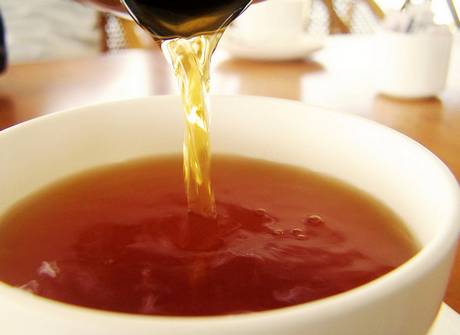Time for coffee and tea
Tea anti-carcinogenic properties
Tea Polyphenols
- Tea polyphenols
- Tea Antioxidants
- Polyphenol Biotransformation
- Catechin availability
- Cancer and Tea
- Tea and Cardiovascular Disease
- Tea and type II Diabetes
- Obesity and tea
- Tea prolongs Life
- Osteoporosis and tea
- Green Tea and Skin Cancer
- Green Tea and Breast Cancer
- Green Tea Prostate Cancer
- Green Tea and Lung Cancer
- Tea and Liver Cancer
- Tea and Gastrointestinal Cancer
Recommended Pages
The Anti-carcinogenic Aspects of Tea Consumption
Much research has been done into the potential health benefits of drinking black and green tea. Much of the beneficial properties of these beverages is due to the antioxidative polyphenols that they contain such as theaflavins and catechins.
In addition to polyphenols teas are also known to contain other compounds such as vitamins and minerals that are also beneficial to health. One of the positive health benefits associated with tea is its anti-carcinogenic properties.

Pouring a healthy cup of tea: Photograph by Dr. Patrick George.
It is therefore thought that the regular consumption of three cups of tea (especially green tea) may be beneficial in the fight against cancer.
Evidence for the Cancer Fighting Potential of Green Tea
In vitro scientific research has shown that tea polyphenols are able to bind directly to carcinogens, are able to stimulate the enzymes that are involved in fighting cancer such as UDP-glucuronosyl transferase and inhibit transcription factors such as AP-1. Polyphenols found in tea have also been shown to induce apoptosis, induce cell cycle arrest and reduce the activity of the protein tyrosine kinase.
Tea Consumption and the Prevention of Cancer
In addition to acting on cancer cells the consumption of tea is thought to be beneficial in the prevention of cancer itself. With regards to cancer prevention it is thought that the components found in green tea are much more beneficial than those found in black tea. Research in Japan suggested that a very high and regular consumption of green tea can delay the onset of cancers by nearly nine years.
Some of the cancers that research has been carried out into the link between them and the consumption of tea with positive results include skin cancer (affects papilloma), prostate cancer (through inhibition of CaP progression), liver cancer (decrease in GST positive hepatic foci ) and breast cancer (decrease in tumour size), amongst many others. Additionally the consumption of green tea has also been linked as being beneficial in the fight against cardiovascular disease (anti- inflammatory).
Cabrera et al (2006). Beneficial effects of green tea - a review. J. Am. Coll. Nutr. 25: 79 to 99
Khan and Mukhtar (2007) Tea polyphenols for health promotion. Life Sciences 81: 519 to 533
Mukhtar and Ahmad (2000). Tea polyphenols: prevention of cancer and optimizing health. American Journal of Clinical Nutrition 71: 1698Sto S.
Wiseman et al. (1997). Antioxidants in tea. Critical Reviews in Food Science and Nutrition 37: 705 to 718.